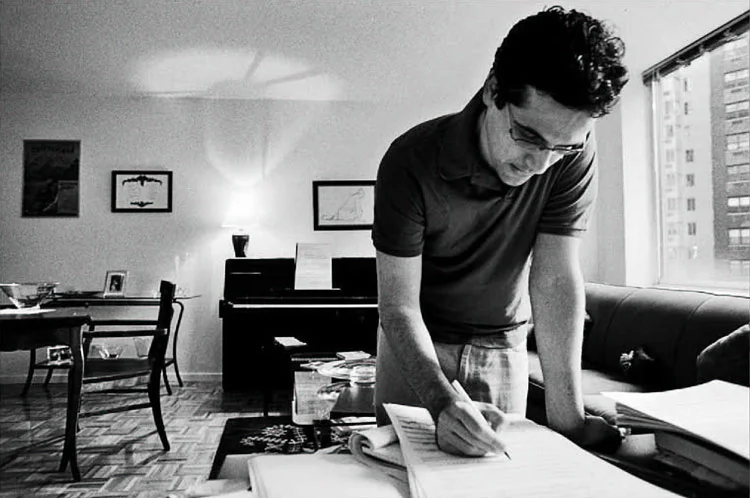This is surreal. And yet real. Let me take a step back, tell you what I’ve seen, what I’ve been part of, and then try and process the effect that it’s had.
So. I got back to Karlsruhe some days ago and that same evening I watched a fully-staged, fully-lit piano rehearsal. That means of course I saw the whole thing as it will be on opening night – right down to the singers’ make-up – except that there was no orchestra. Since then we’ve had lots of rehearsals with orchestra and singers, some of them fully staged, some not, but all without costumes. That means I’ve seen and heard all the constituent parts, just not at the same time. Tomorrow, there’s a full rehearsal with everything and then the final rehearsal the following day. At those two rehearsals, all changes will have been made and everything will be set in stone for opening night.
Now the processing part, and this bit is harder, because until you’ve written an opera and had this experience, it’s hard to describe. Look – when you write a big orchestral piece and the music has been playing around and around in your head for so long, when you finally get to the concert and hear actual musicians in an actual orchestra playing it, it’s a bit like an outer-body experience. This is like that, except multiplied by 1000 times!
I got here to find people walking around humming tunes that I’ve been thinking about for years now. And they’re on stage acting out this drama that I’ve lived with for a very long time. These are real people, with real faces and bodies and their own personalities and thoughts – and they all come up to me and talk to me about the opera. It feels a bit like a person who has had some kind of crazy episode and created an alternative world in his mind, and then suddenly he gets somewhere and that world exists! It’s all around him!
The other thing that took me by surprise, and I suppose it shouldn’t really have, is the stage. In my head, where anything can happen, I imagined the action as much more cinematic. I didn’t quite imagine it on a single stage the whole time. But when you’re presented with the size of the stage, of the props – and Keith Warner’s fantastic production (the main device of which is extremely clever but I don’t want to give away) uses a lot of Wagnerian props, the hat with the horns, the spears, the dragon – with it all being so outsize, it throws you into this fantastic and fantastical non-reality. In other words, that stylisation and the confines of the stage give it tremendous power.
And I’ve been thrilled to watch the different ways of working of the Music Director Justin Brown (about whom I wrote last time), still refining, still bringing out the musical details, and the director Keith Warner. I’ve missed the period of rehearsals where Keith built the production, but even now I watch him go on stage and work with the singers on placement and timing. And what I really like about his directing is that he somehow allows everybody to be themselves while bringing out their aspects natural personalities for the roles. He doesn’t force anything, but in a very gentle way he sees what is within them that they can use to live the story onstage. That’s a very special human interaction and it allows the singers to become involved with their characters in very meaningful ways.
Yesterday, for instance, we had the understudy for the role of Houston singing while the first-cast actor was onstage acting. And there was a moment where the first-cast actor just started to sing, without even realising it. He was so in the moment that he hadn’t even noticed that he was singing!
Other composers had warned me, “You don’t want the director to ruin your opera!” But that was never a question with Keith. He is such a fine musician, he understands music so deeply, that everything he has brought has just added dimensions. I suspect also that he has a tension within himself about who the Wagners actually were, though he adores Wagner’s music, and that this piece may have enabled him to work through some of that conflict! In any case, with Keith and Justin and the whole team, I couldn’t be happier. Roll on opening night!
